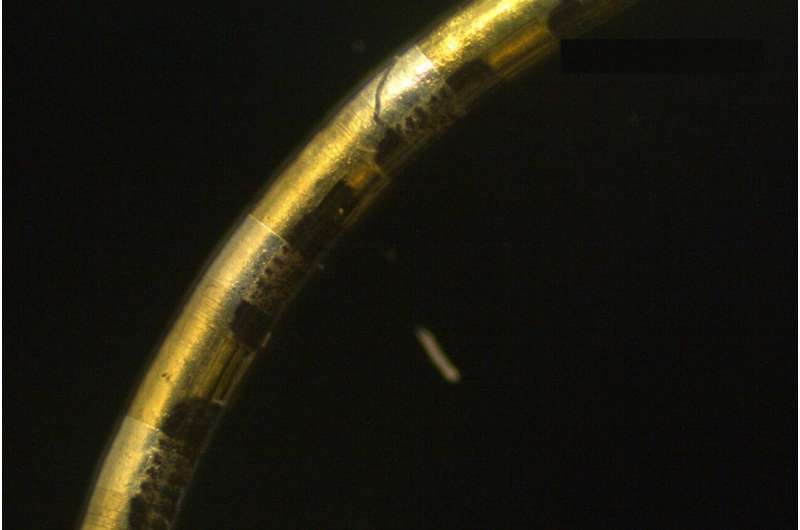Stanford pediatric surgeon James Dunn specializes in helping children with short gut syndrome, a congenital disease in which children are born with short intestinal tracts. “I’ve been working to grow new intestinal tissue by applying a mechanical force to the intestine—stretching it,” Dunn, who is a professor of surgery in the School of Medicine, explained. “But I didn’t have a way to demonstrate that this new tissue is functioning exactly like normal intestine.”
That is when Dunn reached out to Zhenan Bao, the K.K. Lee Professor of Chemical Engineering and director of the Stanford Wearable Electronics Initiative (eWEAR), who has drawn worldwide attention for developing skinlike electrical circuits, like her electronic skin that can sense the weight of a butterfly and the heat of a flame. The result of their collaboration is NeuroString, a multichannel, soft, thread-like implantable biosensor/stimulator.

